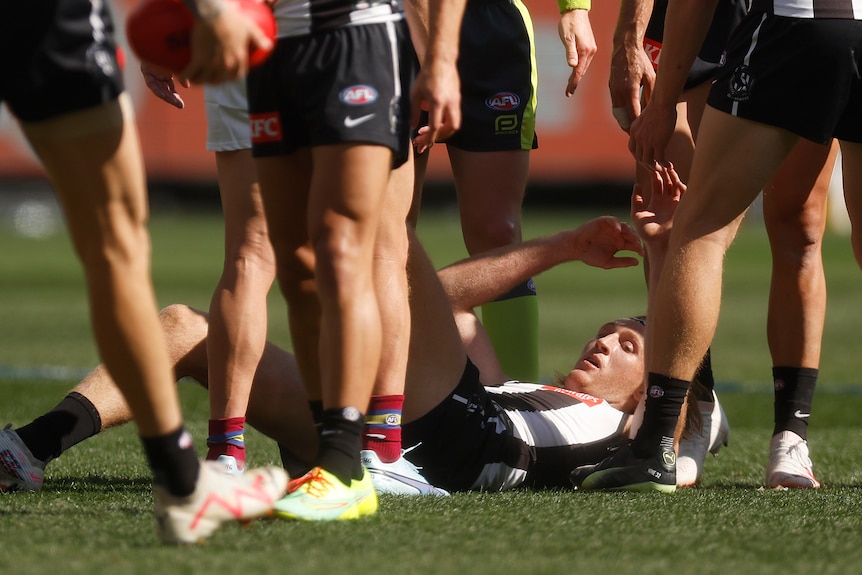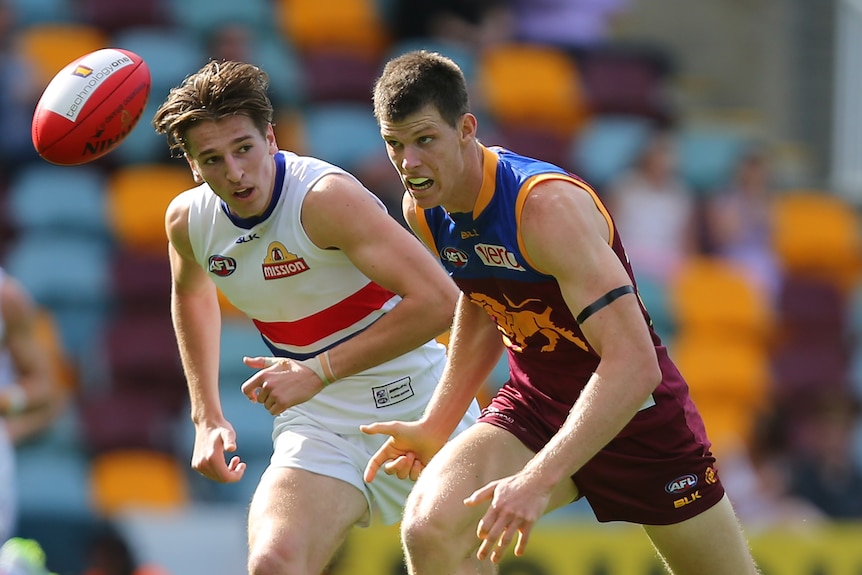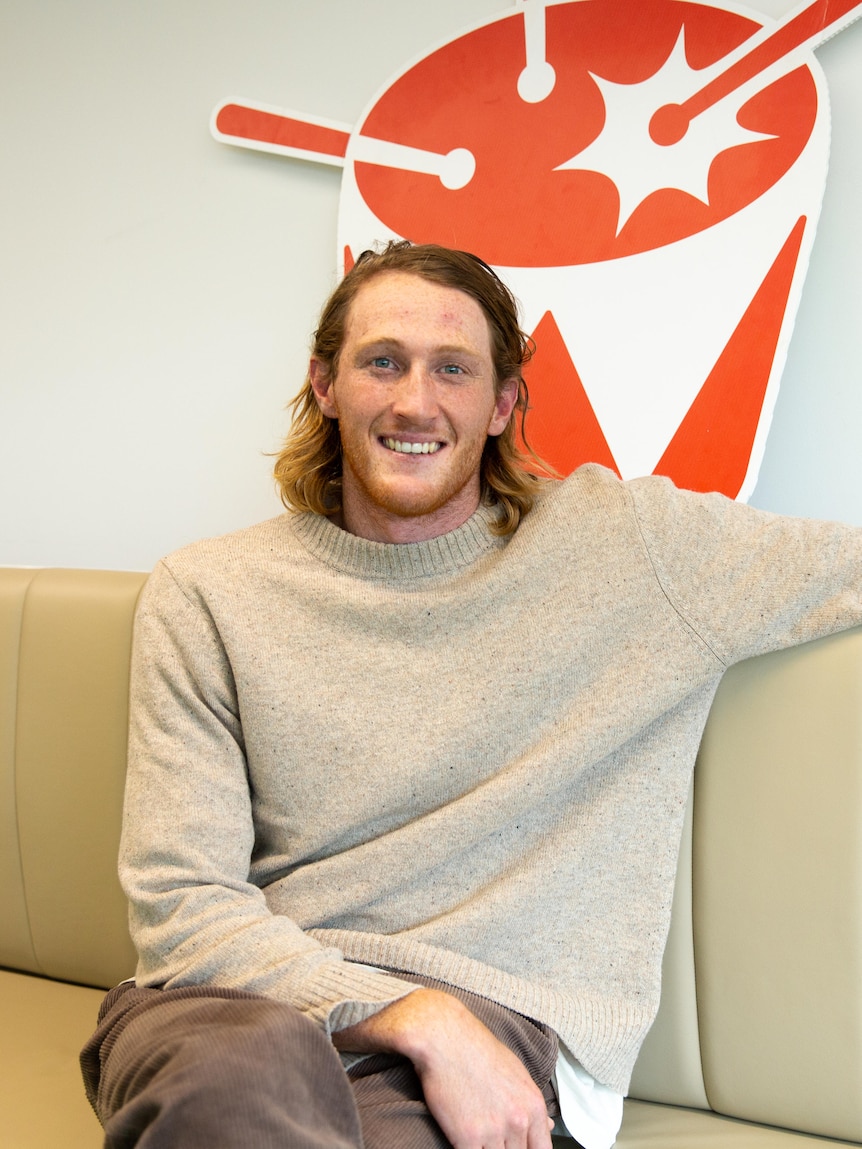In the first quarter of the 2023 AFL Grand Final, Collingwood defender Nathan Murphy was on the ground, breathing heavily after a head knock.
His vision blurred, he was subbed out of the game, and doctors later confirmed he had suffered his 10th career concussion.
“I react differently to every concussion,” Murphy told triple j Hack.
“Headache, sensitivity to light and noise – playing in front of 100,000 people, and I think it was 30 degrees on that day, it was all just hitting me.”
This Tuesday, the 24-year-old announced his retirement from the sport on the advice of a medical panel.
Murphy sought the expert assessment after six months of recurring anxiety and panic attacks – symptoms he’d not experienced after other concussions.
It was when he started experiencing panic attacks in bed that “the alarm bells started ringing”.

“It was taking such a mental and emotional toll on me and the people around me. That’s when I decided that enough was enough and I went to the panel.”
“It was a relief for me that the decision was taken out of my hands because yeah, I probably couldn’t really go on.”
Asking for help
Murphy isn’t the first AFL player to retire early because of head trauma, or the youngest.
In 2016, 22-year-old Lions defender Justin Clarke retired after a concussion caused weeks of memory loss.

This February, 28-year-old Angus Brayshaw retired due to a concussion sustained in a 2023 finals game against Collingwood.
“Gus and I are really good family friends,” Murphy said.
In the wake of the 2023 season, the two frequently discussed their shared experience of head trauma and uncertain AFL futures.
“It’s very hard to tell someone what to do in this area – deep down the person going through it knows what to do,” Murphy said.
“In terms of the decision [to retire], we left that up to each other.”
Despite the support of his family, friends, and club, Murphy said he still felt lonely in the months after the Grand Final, especially as his symptoms worsened.
He now hopes to offer the same support to others in the league and outside of it.
“I think I want to offer my services to anyone as well that’s going through something like this because it can be a lonely place at times.”
Loading Instagram content
What’s next for Nathan Murphy?
As he was being introduced to Hack’s radio audience, Murphy laughed at the label “former AFL player”.
“It’s weird to hear that,” he said.
In his last game, Murphy was two years younger than the average Collingwood player.
Without the concussions, commentators say it’s likely he would have had several more years to play before aging out of the league.
But despite the early retirement, he’s optimistic about his future.
“When you’re a footballer, everyone gets sucked into thinking football is your identity, but it’s not who I am and there’s so much more to me as a person,” Murphy said.
“I’ve started PE teaching and environmental science [degrees] and I’ve got the cafe Whiplash which is in Hawthorne.”
Collingwood knew Murphy’s future as a footballer was uncertain when it extended his contract for the 2024 and 2025 seasons.
He said that financial security gave him the confidence to put his health first.
“A lot of clubs speak about putting the individual first and the athlete second and Collingwood have really been living it through this whole process.
“It took every other equation out of it and I was just able to focus on me and my health. I’m so grateful for that.”
Not the same five years ago
Since announcing his retirement, Murphy says he has been overwhelmed with support.
“Some of the most rewarding stuff that’s come from this is having parents messaging me on Instagram and saying how much of a role model it can be for kids who are going through the same thing,” he said.
“We’re seeing young kids and young athletes who have three, four concussions before they’re even 18.”
Like many footballers, Murphy sustained his first concussions long before being drafted to the AFL.
“It’s very hard as a kid starting your footy journey and being in and out the team, and then you have that head knock and you don’t want to report it because there’s 14 days that you have to miss out,” he said.
Last month, the AFL extended the mandatory rest period for concussions sustained in community-level games to 21 days, following the recommendations of an Australian Sports Commission report.
However, it did not do the same for AFL games, keeping the existing 12-day rest period.
“I don’t believe it would have been the same [level of support] five years ago,” Murphy told Hack.
“I think we’ve got to the point where everyone is really putting their health first and it gives me a bit of a kick that we’re so keen to improve this space.
“And I think in three, four, or five years we’ll have so much more available to players, so many more resources that we can lean on.”
Loading…
Going out on a high
As Murphy recovered from his game-ending concussion, the 2023 Grand Final continued around him.
He was relieved when the concussion symptoms eased with his memory intact.
He felt even better as the final siren rang with Collingwood ahead by 4 points, making him a premiership player in what would prove to be the final moments of his football career.
“I’m pretty happy to say I can remember that whole day and can remember all the celebrations, which I think is the positive thing out of all this, I got to experience my lifelong dream,” Murphy said.
He smiled as he delivered what will surely become a running joke.
“You’re only as good as your last game.”








